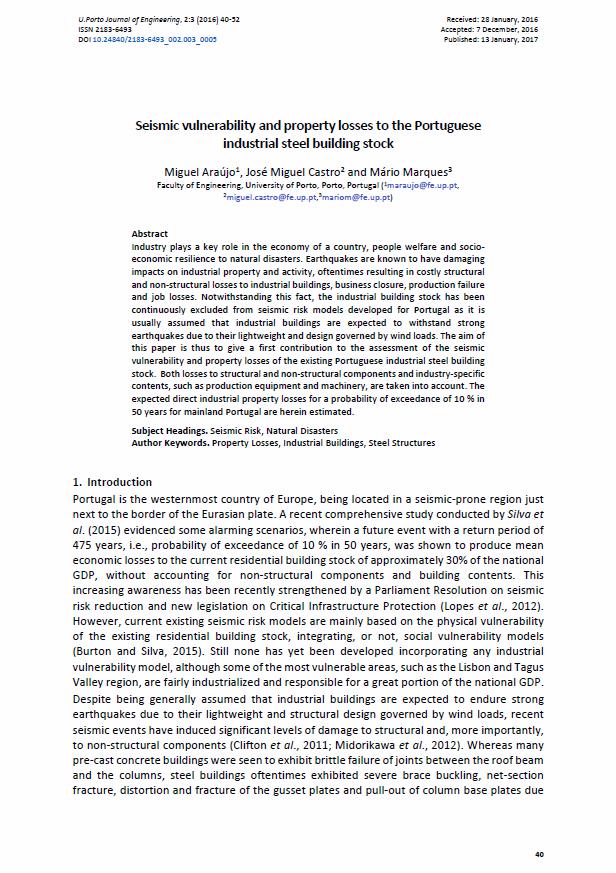Seismic Vulnerability and Property Losses to the Portuguese Industrial Steel Building Stock
Main Article Content
Abstract
Industry plays a key role in the economy of a country, people welfare and socio-economic resilience to natural disasters. Earthquakes are known to have damaging impacts on industrial property and activity, oftentimes resulting in costly structural and non-structural losses to industrial buildings, business closure, production failure and job losses. Notwithstanding this fact, the industrial building stock has been continuously excluded from seismic risk models developed for Portugal as it is usually assumed that industrial buildings are expected to withstand strong earthquakes due to their lightweight and design governed by wind loads. The aim of this paper is thus to give a first contribution to the assessment of the seismic vulnerability and property losses of the existing Portuguese industrial steel building stock. Both losses to structural and non-structural components and industry-specific contents, such as production equipment and machinery, are taken into account. The expected direct industrial property losses for a probability of exceedance of 10 % in 50 years for mainland Portugal are herein estimated.
Downloads
Article Details
Authors who publish with this journal agree to the following terms:
- Authors retain copyright and grant the journal right of first publication with the work simultaneously licensed under a Creative Commons Attribution License that allows others to share the work with an acknowledgement of the work's authorship and initial publication in this journal.
- Authors grant the journal the rights to provide the article in all forms and media so the article can be used on the latest technology even after publication and ensure its long-term preservation.
- Authors are able to enter into separate, additional contractual arrangements for the non-exclusive distribution of the journal's published version of the work (e.g., post it to an institutional repository or publish it in a book), with an acknowledgement of its initial publication in this journal.
- Authors are permitted and encouraged to post their work online (e.g., in institutional repositories or on their website) prior to and during the submission process, as it can lead to productive exchanges, as well as earlier and greater citation of published work (See The Effect of Open Access).

